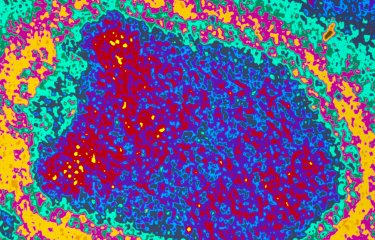-
Article | 2017.08.07
Anti-Rabies Center - Rabies post-exposure prophylaxis
The Anti-Rabies Center-Rabies post-exposure prophylaxis-attends to anyone who has been in contact with an animal that may transmit rabies, either in France or abroad. Rabies is a deadly disease and treatment needs to be started as soon as possible. The medical team will see any patients at risk, immediately following rabies exposure, or wishing to continue a course of treatment started abroad.
-
Fiche maladie | 2016.08.18
Rabies
Rabies is a severe viral infection that can be transmitted to humans by certain mammals. The disease is almost always fatal once symptoms appear, and today rabies is still responsible for tens of thousands of human deaths every year. Africa and Asia have the highest rabies burden, and dogs are the main vector responsible for transmission to humans. In Europe, bats can be infected by certain...
-
Document de presse | 2007.06.21
Rabies in the bat
The largest active surveillance study of rabies in bats ever performed was carried out by researchers from the Institut Pasteur and from the University of Barcelona in Spain. This study, published in 'PLoS ONE', enabled the evaluation of the dynamics of the infection in its animal reservoirs and had useful implications for public health. The study also confirmed a limited but still real...
-
Article | 2017.03.16
Workshop on Surveillance and Control of Rabies
The purpose of this course is to provide a practical training on rabies with a special focus on Middle East and Central Asia for students and professionals of animal and human public health sectors.
-
Document de presse | 2007.08.31
Rabies - Press kit
September 2007 > Rabies in France in 2007 > Rabies research at the Institut Pasteur > Louis Pasteur and rabies vaccination
-
Document de presse | 2022.06.29
Rethinking the rabies vaccine
Rabies virus kills over 50,000 people each year. Although current rabies vaccines are effective, they do not offer lifelong protection and booster doses are required. Institut Pasteur scientists, in collaboration with researchers from La Jolla Institute for Immunology (LJI) in the United States, captured new high-resolution views of rabies virus, revealing potential vaccine targets. These...
-
News | 2023.11.15
The history of the first rabies vaccination in 1885
In 1885, a boy by the name of Joseph Meister was bitten 14 times by a rabid dog, with life-threatening consequences. Dr. Jacques Joseph Grancher convinced Louis Pasteur and his colleagues to vaccinate the young man. This first human rabies vaccination was a resounding success.
-
Document de presse | 2009.03.30
Rabies in Africa : from its origins to the current fight
Today, Africa is the second continent most affected by rabies, after Asia. A recent study conducted by Institut Pasteur researchers retraced the origins and evolution of the disease in Western and Central Africa, and revealed that the emergence and the dissemination of the rabies virus coincided with the beginning of European colonization. In addition to its historical value, this research also...
-
News | 2020.02.06
Rabies: new prophylactic and therapeutic avenues
Rabies is still responsible for approximately 60,000 human deaths per year mostly in Asia and Africa and affects especially underserved people. Yet, since the first vaccine developed by Louis Pasteur more than 130 years ago, prophylactic measures have significantly improved. They are now composed of the vaccine allied to purified human or equine rabies immunoglobulins. However, these...
-
News | 2021.09.30
An exceptional case of rabies in France transmitted by a bat
On rare occasions in mainland France, a bite or scratch by a bat can transmit a virus capable of causing rabies, as was the case for a patient in 2019. Experts from the National Reference Center for Rabies at the Institut Pasteur contributed to a study on that particular case this year, in cooperation with research teams from the Institut Pasteur and Necker Enfants Malades and Pitié-Salpêtrière...

